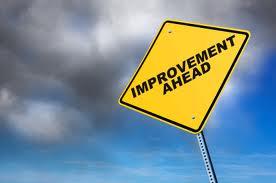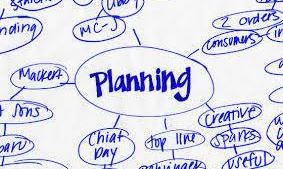
Three Key Ways to Improve at Chess (part 1)
Recently I've received a lot of emails from prospective students who ask me “How do I get better at chess?” In my opinion, there are three important methods of improvement that I feel are key to everyone's growth as chess players. This article will deal with the first key method of improvement and future articles will deal with the other two methods.
First of all, “How do I get better at chess?” is a very broad question. Improvement in chess, like anything else, can be hard to see at times, or can be blatantly obvious at other times. Just the simple act of learning a new opening line is one way to show improvement. Or beating your nemesis who you've never won against is another way to show improvement. But what most people actually mean when they ask this question is “How can I raise my rating?” or “How can I beat stronger opponents?” or “How can I understand chess better?” And in order to do these things, there are three key methods of improvement that all chess players striving to get better should focus on:
- Take in as much information about chess as possible (Learning)
- Have a plan of action in every position in your games (Planning)
- Practice, practice, practice tactics (Tactics)
Unfortunately improvement at chess is not a quick fix. There is not "one thing" that I can recommend for you to do that will drastically improve your game. The improvement you seem from using these methods may seem slow, but it's important to have overall growth rather than to get good at just one part of chess and still be lagging behind on the other parts at the same time. If you follow these three tips, I promise you that you WILL see an overall improvement in your game.
"Take in as much information about chess as possible" (Learning)
This is number one on the list because I feel that the absolute best way to improve is to learn as much about chess as you can. Work on your game. Take time to practice it. You will only get as much out of this game as you are willing to put in. If you truly want to get better at chess, raise your rating and eventually become a master, you must be prepared to take it seriously and set aside some time to study. This is not a quick process. You will need to soak up as much information as you can about the game, and then slowly put the pieces of the puzzle together. The more information about chess that you learn and retain then the more your knowledge will grow, you will recognize new things and this will lead to your improvement as a player. This now leads to the question: “Where do I find information about chess?”
Well, there are a multitude of ways to learn about chess, it's strategy and it's history. You want to take advantage of all the tools that are available to you. Five ways that this can be accomplished are:
1. Reading a book or an article about chess:
Chess books and articles cover a wide variety of topics including strategy, tactics, openings, middlegames, endgames, biographies, classic master's games, etc. and can be re-read over and over to learn things you might have missed on previous read-throughs.
Resources: Chess.com Articles ; Chessbase.com
2. Studying a strong player:
If you happen to have an idol in chess or someone who's game you want to emulate or copy, then looking at their games and seeing the positions and patterns that are in their games will help you with your own game as well. The more positions you see, the more patterns will be imprinted in your brain and these patterns will come to mind when you run into similar positions in your own games.
Resources: Chess.com Game Explorer ; ChessGames.com
3. Watching videos:
Videos are great because you can see the board and hear someone talk about the position at the same time. Videos works through two of your senses (visual and auditory) instead of just one. This is an especially popular method in the 21st century for learning more about chess considering that most people have smartphones and have access to YouTube for finding free videos on-the-go. There are many great videos on YouTube that will help you to learn more about chess and these videos can be viewed even when you're on-the-go. Also, chess.com has a terrific video library with a ton of great videos to help with your improvement.
Resources: Chess.com Video Lessons ; YouTube.com (search "chess")
4. Playing online games:
This even includes blitz. You might be thinking “*gasp* Isn't blitz bad for your chess? How are you supposed to play well when you only have a few minutes for the entire game?” But I strongly advocate playing blitz as a learning and practice tool. Playing a shorter timed game allows you to play more games in a given window of time. The more games you play = the more positions you will see = more patterns being memorized = your learning is accelerated. But if the shorter amount of time causes you to play much worse than normal, then disregard this specific tip and try out the turn-based games here on chess.com instead.
Resource: Play chess on Chess.com
5. Learning from a chess coach:
Where a coach comes in handy is with the wealth of information that they've already learned themselves that they can now share with you. Chess coaches are typically higher rated players who have gone through the process of learning a lot of things on their own and now have a stockpile of information that they can help you learn. Another advantage of a chess coach is that they know what to focus on in the learning process. One student may want to work on endgames but the coach may realize from working with the student that they end up making too many tactical mistakes throughout the opening and middlegame phases and their games never actually make it to the endgame phase. The chess coach will be able to pinpoint this quickly and help the student to develop a plan of things to work on that will help their game right away. In this case, the best plan may be for the student to improve their tactical ability before focusing on endgames.
Resource: NextLevelChessCoaching.com
And there are many other ways to learn about chess aside from these five ways. The important thing to grasp when you are doing these things and when you are learning more about chess is the PATTERNS that you see. For example: When you see an opening being played, look at how the players consistently put their pieces in certain positions to maximize their efficiency. When you are able to learn different positions and patterns that other people have played and how they were able to play them correctly, then you will now have that knowledge if you ever happen to play a similar position. And the more patterns that you memorize, the more your understanding will grow. The puzzle pieces will start to connect together and you will be able to see the big picture instead of just specific little moves and this will help you to improve by leaps and bounds.
Here is an example of a tactical pattern that repeats itself in multiple games. It is called "Taimanov's Knight Check":
We see that this pattern is focused on four things:
- The defender's king being trapped on h1/h8
- A diagonal piece (Bishop or Queen) defending the a2-g8/a7-g1 diagonal
- A knight being sacrificed with check on g6/g3 to open the h-file
- A heavy piece (Rook or Queen) finishing the mate on the h-file
Studying and seeing this pattern (along with other patterns you will see throughout your studies) will help you to have an easier time finding this possibility in your own games and will help you with your overall chess improvement.
So I feel that taking in as much information as possible about chess is the first, and most imporant, method of improvement. And while you are taking in this information, it is imporant to focus on the patterns that you see as well. Next article will shed some light on the second method of improvement in chess: "Have a plan of action in every position in your games". Stay tuned for that article!






